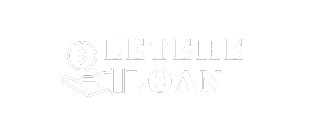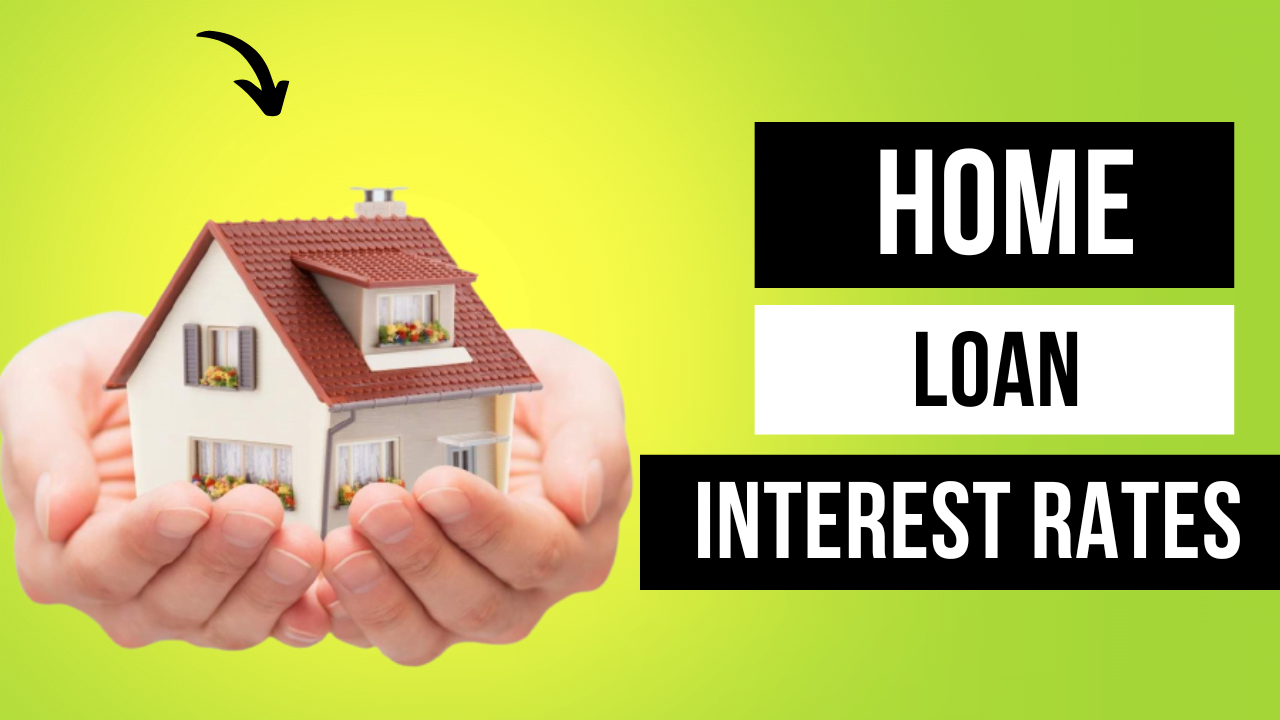Purchasing a home is one of the biggest financial decisions you’ll ever make. For most people, this requires securing a home loan or mortgage. Whether you’re buying your first home or refinancing your current property, understanding how home loans work is crucial to making an informed decision.
In this guide, we will break down the essential components of home loans, the process of getting approved, and the different types of mortgages available to help you understand the complexities and ultimately choose the right option for your needs.
Key Takeaways
- Home loans are financial products that allow you to borrow money to purchase a home.
- There are several types of home loans, including fixed-rate mortgages, ARMs, FHA, VA, USDA, and jumbo loans.
- The process of getting approved involves checking your credit score, determining how much you can afford, saving for a down payment, and shopping around for the best mortgage rates.
- It’s essential to gather all necessary documents, get pre-approved, and understand the terms of your loan before making an offer on a property.
- With proper planning and research, securing a home loan can be a straightforward process that helps you achieve your homeownership goals.
What is a Home Loan?
A home loan, also referred to as a mortgage, is a type of loan that is used to finance the purchase of a home. It is a legal agreement between a borrower (the homeowner) and a lender (usually a bank or financial institution), where the borrower agrees to repay the loan amount, along with interest, over a specified period, typically 15 to 30 years.
The home itself serves as collateral for the loan. If the borrower fails to repay the loan, the lender has the right to foreclose on the property to recover the outstanding balance. This makes securing a home loan both an important and serious commitment.
Types of Home Loans
Before diving into how to get approved for a home loan, it’s essential to understand the different types of loans available. Home loans can be divided into several categories:
Fixed-Rate Mortgages
A fixed-rate mortgage is one of the most common types of home loans. As the name suggests, the interest rate on a fixed-rate mortgage stays the same throughout the loan term, typically 15, 20, or 30 years. This predictability makes it easier for homeowners to budget their monthly payments.
Adjustable-Rate Mortgages (ARMs)
An adjustable-rate mortgage is a home loan where the interest rate changes over time. Typically, the interest rate starts lower than that of a fixed-rate mortgage but adjusts periodically based on market conditions. ARMs may offer lower initial payments, but the risk is that the interest rate could increase, making your payments rise in the future.
Federal Housing Administration (FHA) Loans
FHA loans are government-backed loans designed for first-time homebuyers and individuals with lower credit scores or limited down payment funds. FHA loans generally have lower interest rates and require a smaller down payment (typically 3.5%).
Veterans Affairs (VA) Loans
VA loans are available exclusively to current or former military service members and their families. These loans are backed by the U.S. Department of Veterans Affairs and typically require no down payment or private mortgage insurance (PMI), making them an attractive option for eligible individuals.
Conventional Loans
Conventional loans are traditional mortgages that are not insured by the government. These loans are often available to individuals with a good credit history and a larger down payment. Conventional loans may have stricter qualification requirements compared to government-backed loans.
USDA Loans
The U.S. Department of Agriculture (USDA) offers home loans designed for low-income buyers in rural and suburban areas. USDA loans typically require no down payment, and the interest rates are generally competitive. However, they have specific eligibility requirements based on income and location.
Jumbo Loans
Jumbo loans are loans that exceed the conforming loan limits set by the Federal Housing Finance Agency (FHFA). These loans are typically for high-value properties and may require a larger down payment and higher credit scores.
Steps to Getting Approved for a Home Loan
Now that you have a basic understanding of the types of home loans, let’s explore the steps involved in getting approved for a mortgage.
Check Your Credit Score
Your credit score is one of the most important factors lenders consider when deciding whether to approve your home loan application. A higher credit score indicates to the lender that you are a responsible borrower, while a lower score may indicate a higher level of risk.
Most lenders require a minimum credit score of 620 for a conventional loan, although government-backed loans like FHA loans may have lower requirements. If your credit score is less than ideal, it may be worth taking some time to improve it before applying for a loan.
Determine How Much You Can Afford
Before applying for a mortgage, it’s essential to understand how much home you can afford. Lenders typically use a debt-to-income ratio (DTI) to determine your ability to repay the loan. Your DTI is calculated by dividing your monthly debt payments (including the new mortgage) by your gross monthly income. Most lenders prefer a DTI of 36% or lower, although higher ratios may be accepted depending on the loan type.
You should also factor in other costs like property taxes, insurance, and maintenance when determining what you can afford. A mortgage calculator can help you estimate your monthly payments based on your loan amount, interest rate, and term length.
Save for a Down Payment
While some loans (such as USDA and VA loans) may require no down payment, most home loans do. The amount of the down payment can vary depending on the type of loan and the lender’s requirements. Generally, a down payment of 20% or more can help you avoid private mortgage insurance (PMI), which is an additional cost added to your monthly payments.
If you don’t have a 20% down payment, don’t worry—many loans require a smaller down payment, such as FHA loans, which typically require only 3.5%.
Gather Your Financial Documents
When you apply for a mortgage, you will need to provide several financial documents to help the lender assess your ability to repay the loan. These documents may include:
- Proof of income (pay stubs, tax returns)
- Employment history
- Bank statements
- Credit history
- Proof of assets (retirement accounts, savings)
It’s important to have these documents prepared before you apply to streamline the approval process.
Shop Around for the Best Mortgage Rates
Not all lenders offer the same interest rates, so it’s important to shop around to find the best deal. You may want to compare offers from banks, credit unions, online lenders, and mortgage brokers. Be sure to consider not only the interest rate but also other factors like loan fees, closing costs, and the lender’s reputation.
Get Pre-Approved
Before you start house hunting, it’s a good idea to get pre-approved for a mortgage. Pre-approval is a process where the lender evaluates your financial situation and determines how much they are willing to lend you. A pre-approval letter can help you shop for homes within your budget and demonstrate to sellers that you are a serious buyer.
Complete the Loan Application
Once you’ve found a home and made an offer, the next step is to complete the full loan application. This is where you will provide detailed information about your finances, employment history, and the property you are purchasing. The lender will review your application and conduct an appraisal of the property to ensure it is worth the loan amount.
Wait for Approval and Closing
After submitting your loan application, the lender will evaluate all of the information you’ve provided and make a decision about whether to approve or deny your loan. If approved, the lender will issue a loan commitment, and you will proceed to the closing process. This involves signing the loan documents, paying closing costs, and officially transferring ownership of the home.
Top 10 Tips for Securing the Best Home Loan Rate
Securing the best home loan rate is a critical step in the home buying process. A lower interest rate can save you thousands of dollars over the life of your mortgage, so it’s important to be strategic when applying for a loan. Here are the top 10 tips for securing the best home loan rate:
Improve Your Credit Score
Your credit score plays a significant role in determining your mortgage rate. Lenders view borrowers with higher credit scores as less risky, and therefore, offer them more favorable rates. A higher score can save you money on both your monthly payment and the overall interest paid on the loan.
To improve your credit score:
- Pay your bills on time.
- Keep your credit card balances low.
- Avoid opening new lines of credit just before applying for a mortgage.
- Check your credit report for errors and dispute any inaccuracies.
Save for a Larger Down Payment

A larger down payment can often result in a better mortgage rate. Lenders see borrowers who put down more money upfront as less risky. In addition to getting a better rate, a larger down payment may also allow you to avoid private mortgage insurance (PMI), which can further reduce your monthly payments.
Aim for at least a 20% down payment, but if you can save more, it may improve your chances of securing a better rate.
Shop Around and Compare Lenders
Different lenders offer varying rates, terms, and fees, so it’s crucial to shop around. Obtain quotes from at least three or four lenders to compare offers. You can check rates from traditional banks, credit unions, and online lenders. Be sure to evaluate not just the interest rates, but also closing costs, fees, and the loan’s overall terms.
Using a mortgage broker is another option to help you find the best rate, as they have access to multiple lenders and can assist you in comparing various offers.
Consider a Shorter Loan Term

While a 30-year mortgage is the most common loan term, choosing a shorter loan term, such as 15 or 20 years, can help you secure a lower interest rate. Shorter loan terms carry less risk for lenders because they are paid off more quickly, which translates into a lower interest rate for you.
If you can afford the higher monthly payment, a shorter-term mortgage can save you significant money over the life of the loan.
Lock in Your Rate
Mortgage rates can fluctuate daily, and even small changes can impact the amount of interest you’ll pay over time. Once you’ve found a rate you’re happy with, consider locking it in with your lender. A rate lock guarantees that your interest rate will remain the same for a specified period, typically 30 to 60 days, while you complete the home-buying process.
However, keep in mind that rate locks may come with fees, and if rates fall after you lock in your rate, you won’t benefit from the decrease.
Pay Down Existing Debt
Lenders typically look at your debt-to-income ratio (DTI) when deciding your eligibility for a home loan and the rate you’ll receive. Your DTI is calculated by dividing your total monthly debt payments by your gross monthly income. A lower DTI demonstrates to lenders that you have more disposable income to manage a mortgage.
Paying down credit card debt, student loans, or other outstanding obligations can help lower your DTI and improve your chances of securing a better rate.
Consider a Larger Loan Amount

If you have the financial means, securing a larger loan amount may help you get a better rate, especially in the case of jumbo loans. Lenders may offer better terms for larger loans, as they are more profitable for the institution.
However, this strategy depends on your ability to comfortably afford the larger loan, so it’s important to assess your financial situation before pursuing it.
Choose the Right Type of Loan
The type of loan you choose will affect your interest rate. Government-backed loans such as FHA, VA, and USDA loans may offer lower rates for eligible borrowers, especially first-time homebuyers. However, conventional loans, which are not insured by the government, may also provide competitive rates, especially for those with higher credit scores.
Consider all your options, and choose the loan type that best suits your financial situation and long-term goals.
Consider Points and Fees
Some lenders may offer you a lower interest rate in exchange for paying “points” upfront. One point typically equals 1% of the loan amount and can reduce your interest rate by a small amount. However, you’ll need to weigh whether the upfront cost of paying points is worth the long-term savings on interest.
If you’re planning to stay in your home for a long time, buying points can be a good investment. But if you plan to move or refinance in the near future, paying points may not make sense.
Consider the Timing of Your Application
The timing of your home loan application can also affect the interest rate you’re offered. Mortgage rates tend to fluctuate with the market, so timing your application to coincide with favorable rate conditions can help you secure a better deal.
While you can’t always predict when rates will be low, being aware of economic trends and mortgage rate forecasts can help you plan your purchase for the most advantageous time.
Conclusion
Understanding the home loan process is a crucial first step toward homeownership. By knowing the types of loans available, how to qualify, and what factors influence the approval process, you can make informed decisions that will help you secure the best mortgage for your needs.
FAQs
What is the difference between pre-qualification and pre-approval?
Pre-qualification is an initial estimate of how much you may be able to borrow based on self-reported financial information. Pre-approval is a more formal process where the lender reviews your financial documents and credit report, providing a more accurate loan amount.
Can I get a home loan with bad credit?
It’s possible to get a home loan with bad credit, but it may be more challenging. FHA loans, for example, are available to borrowers with lower credit scores. However, you may face higher interest rates or be required to make a larger down payment.
How much down payment do I need for a home loan?
The required down payment depends on the type of loan. Conventional loans often require a 20% down payment, while FHA loans may only require 3.5%, and VA or USDA loans may not require any down payment at all.
What is PMI, and do I need it?
Private mortgage insurance (PMI) is required if you put down less than 20% on a conventional loan. PMI protects the lender in case you default on the loan. However, PMI can be avoided if you put down 20% or more.
Can I refinance my home loan later?
Yes, refinancing is an option if you want to change the terms of your loan, such as securing a lower interest rate or shortening the loan term. However, refinancing may involve closing costs and eligibility requirements.
How long does it take to get approved for a home loan?
The approval process can take anywhere from a few days to a few weeks, depending on the lender and the complexity of your financial situation. Be prepared for the process to take time, and make sure you have all necessary documents ready.
What is an escrow account?
An escrow account is a separate account used to hold funds for property taxes and insurance. Lenders may set up an escrow account to collect these payments as part of your monthly mortgage payment.





